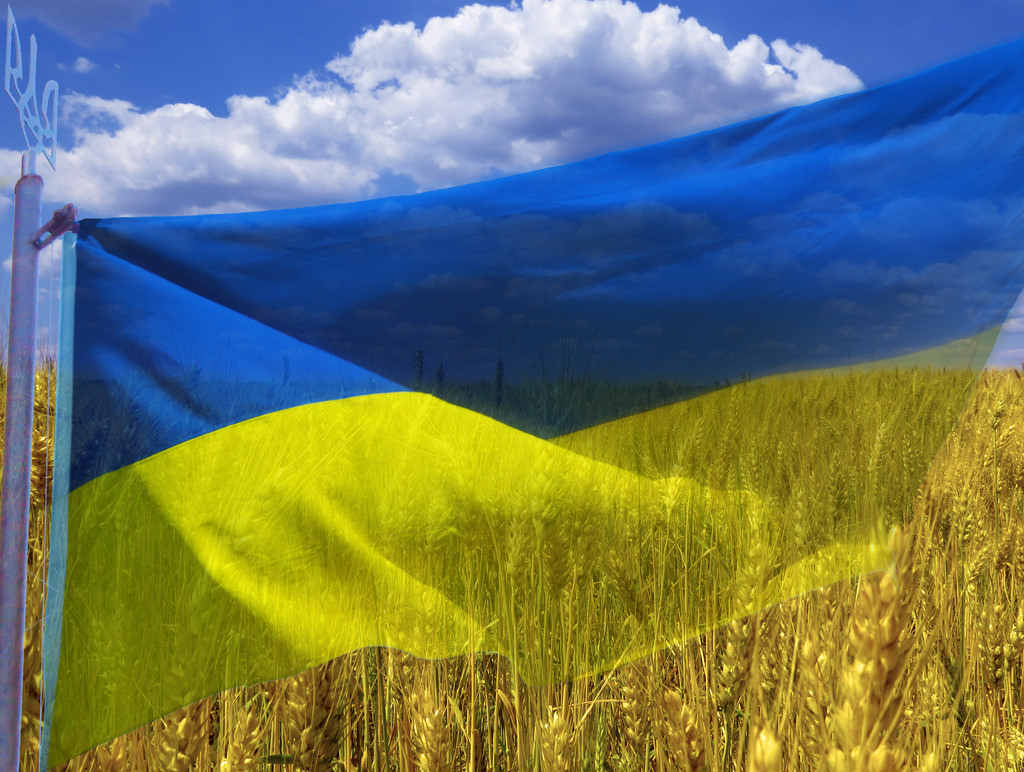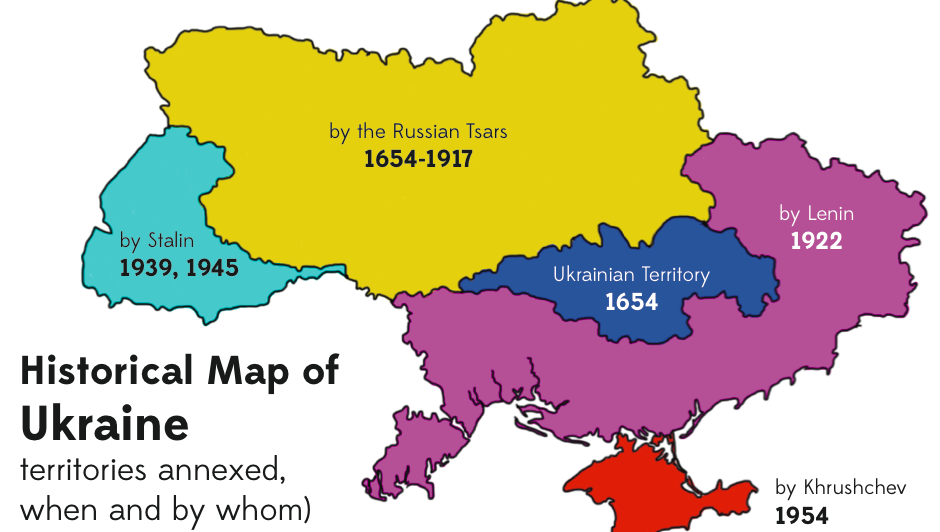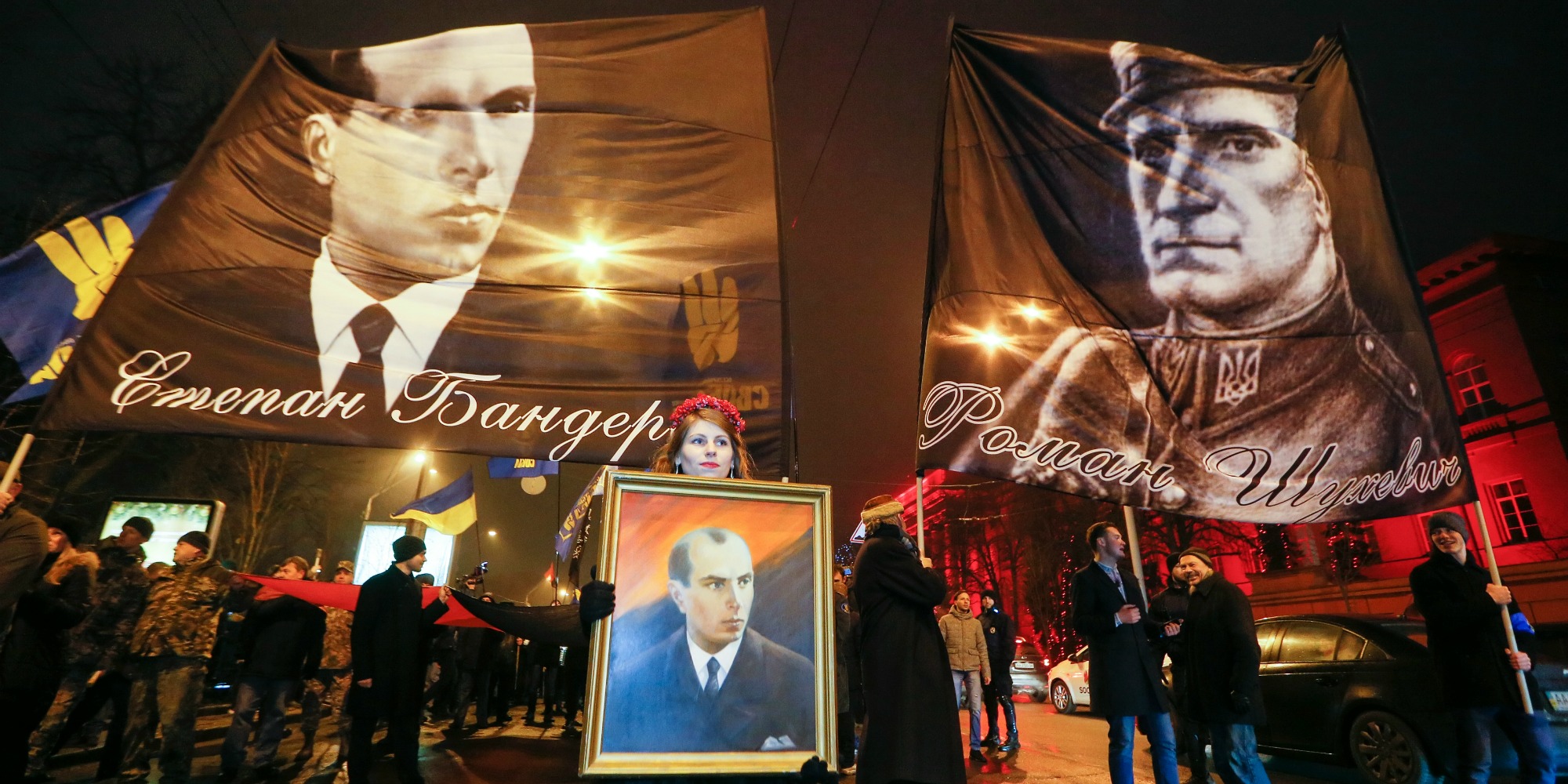
Views: 1344
Ukraine has a complex historical background and most people have little knowledge of this. The western part of Ukraine known as Galicia has an especially complex history. Going back for more than a thousand years, this region had been settled by Slavic tribes who formed the western extension of the Kievan Rus. To the west it had Polish, Lithuanian, Hungarian and Austrian neighbours. And to its misfortune, these neighbours took turns attacking and subjugating these early Ukrainians. It was largely Poland and Austria that took turns suppressing and occupying the region, economically and culturally. Because of this, although Galicia’s population was almost totally Ukrainian, it had never been part of Ukraine until after World War II ended in 1945.
As a result of the 1917 Russian Revolution and the ensuing turmoil in this and adjoining regions, during 1919 Britain assigned their Foreign Secretary George Curzon to conduct a study to determine the ethnic distribution in these areas. As a result of these studies, he drew up a boundary line showing majority populations on each side of the line. This became known as the Curzon Line. However, Poland ignored this matter and in a subsequent war with Russian forces took over areas that were largely Ukrainian and Belorussian.
Following an agreement at the Tehran Conference, confirmed at the 1945 Yalta Conference (Feb. 6,1945), the Allied leaders Roosevelt, Churchill and Stalin issued a statement affirming the use of the Curzon Line, with some five-to-eight kilometre variations, as the border between Poland and the Soviet Union. At first Churchill opposed sections of the proposal and wanted to add parts of Galicia, including the city of Lviv to Poland’s territory. Stalin argued that, as determined by the British official Curzon, these areas had a Ukrainian majority and it would be unjust to allocate them to Poland. Churchill was swayed by this logic and withdrew his proposal. As compensation to Poland for losing about 20 percent of its pre-war borders, the Allies incorporated formerly German-held areas into Poland on its western border. As a result, the current border separating Poland from Ukraine, Belarus and Lithuania is an approximation of the Curzon Line.
After World War II ended in May of 1945, on the basis of this earlier territorial agreement, time was provided for a sizeable transfer of people into these new boundaries. Ukrainians still within the new boundaries of Poland were given the opportunity to move to Ukraine. Also Ukrainians living in Austria were given the opportunity to move to Ukraine. German people within the new boundaries of Poland on the west were repatriated to Germany. Polish people within Poland’s former eastern frontier were transferred to Poland, with most going to the newly acquired western area from Germany. This resulted in finally establishing boundaries for each of these countries in which there would now be no sizeable minority groups and that the majority of people would live within the boundaries of their own country. This was a significant development after World War II.
As a result of this, Ukrainians, for the first time in their history, now had the opportunity to live within the boundaries of their own country.
There is a further addendum to Ukraine’s boundaries. This involves the eastern border between Ukraine and the former USSR and now Russia. Shortly after the 1917 Russian Revolution and the cessation of Western military intervention to try to reinstate the Tsar in the early 1920s, Lenin authorized a change to Ukraine’s eastern border.
He noted that at that period the bulk of Ukraine was mainly an agricultural area, with very little industry. To provide it with a better-balanced economy, Lenin’s government proceeded to allocate an adjoining part of traditional Russian territory to Ukraine. This is an area that had the potential for hydropower and it had major coal and iron ore deposits. This encompassed Krivoy-Rog with its iron ore and other minerals, and the Donetsk and Luhansk regions with their coal deposits. Although only a minority of the population was Ukrainian, with the majority being Russian, the region was transferred to Ukraine because of economic reasons, i.e., to give Ukraine a better-balanced economy. The addition of this area enabled Ukraine to afterwards develop both an agricultural and industrial economy.
Unfortunately, somehow many Ukrainians at the present time are unaware of the fact that if it hadn’t been for these earlier initiative under the USSR, Ukraine would have never had the extent of territory and the boundaries it now has.
The CIA-engineered Maidan coup in February of 2014 overthrew the legally elected government in Ukraine and replaced it with a regime which encompassed a large number of the descendants of the World War II Ukrainian Nazi collaborators based in western Ukraine. This resulted in an immediate referendum in Crimea whose predominant Russian population voted overwhelmingly to leave Ukraine and rejoin the Russian Federation. As a result of this referendum, Russia accepted Crimea into its federation, but this was propagandized as a military takeover or an “annexation” which it definitely was not.
Also because the Donetsk and Lugansk regions, with their large Russian-speaking population, were opposed to the neo-Nazi takeover of Ukraine, they wanted to get a semi-autonomous status in the country. This was flatly refused and instead the Kiev regime launched a military attack on them. They fought back valiantly and defeated the attacking Ukraine army, but these battles killed thousands of people. Since then Kiev’s military units have never ceased shelling these two areas and they launch occasional sporadic attacks that are repulsed, with the result that the death toll is now more than 13,000. Also, because of objections to the new regime, about a million Ukrainians from various parts of the country fled as refugees to Russia.
In the West, with blatant anti-Russia propaganda, all this turmoil is blamed on Russia, with the allegation that Russia has sent in its own troops. However, at a time when satellite photos can be taken of licence plates, there has never a single photo taken of any Russian tanks, military vehicles or soldiers in this area. In fact, the chief of Ukraine’s General Military Staff Victor Muzhenko acknowledged that Russian army units were not involved in combat action in the troubled Donetsk and Luhansk region. Later when Russia, Germany and France negotiated the Minsk Agreement as a possible resolution to this conflict, and had Ukraine’s president Poroshenko and the leaders of Donetsk-Luhansk sign it, Ukraine violated the agreement by refusing to enact any part of it, till this day.
Most Ukrainians had not supported the 2014 coup regime, which gave an inordinate amount of power to the descendants of western Ukraine’s Nazi collaborators. The people gave vent to this in the April 1919 election when an independent candidate Volodymyr Zelensky was elected with 73% of the vote. Afterwards in the July 2019 parliamentary election, Zelensky’s political party, Servant of the People, won 60% of the party-list vote or 254 of the 424 seats.
Despite these progressive changes, Zelensky and the new parliament have somehow been hesitant to enact any meaningful progressive reforms. Aside from a prisoner exchange, no progress has been made in relations with Donetsk and Luhansk. It may be that they are intimidated by the fact that the previous governments since the 2014 coup allowed both the national army and its police forces to be infiltrated with neo-Nazis and their sympathizers. The army includes the Azov Battalion that gained notoriety after allegations emerged of torture and war crimes, as well as its neo-Nazi members and its usage of the logo featuring the Wolfsangel, the initial symbol of the Nazi party in Germany.
The dire situation in Ukraine was alarmingly exposed last year just before their election in a major article in The Nation, which included this account:
Today, increasing reports of far-right violence, ultranationalism, and erosion of basic freedoms are giving the lie to the West’s initial euphoria. There are neo-Nazi pogroms against the Roma, rampant attacks on feminists and LGBT groups, book bans, and state-sponsored glorification of Nazi collaborators.
And so it still remains to be seen if the Zelinsky government can bring about much needed reforms in the country.
In the meantime, with the termination of trade with Russia, Ukraine’s economy has almost collapsed and the people are in dire economic straits.
Originally published on 2020-08-10
About the author: John Ryan, Ph.D. is a retired Professor of Geography and Senior Scholar at the University of Winnipeg. He is a frequent contributor to Global Research.
Source: Global Research
Origins of images: Facebook, Twitter, Wikimedia, Wikipedia, Flickr, Google, Imageinjection, Public Domain & Pinterest.
Read our Disclaimer/Legal Statement!
Donate to Support Us
We would like to ask you to consider a small donation to help our team keep working. We accept no advertising and rely only on you, our readers, to keep us digging the truth on history, global politics, and international relations.
[wpedon id=”4696″ align=”left”]
FOLLOW US ON OUR SOCIAL PLATFORMS











